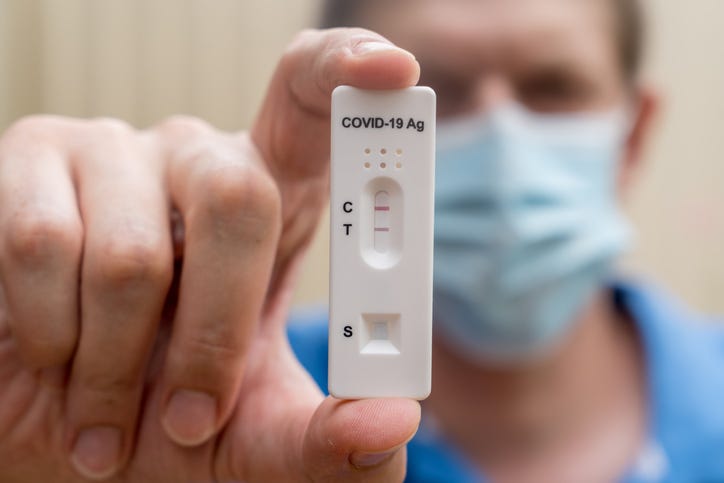
SAN FRANCISCO (KCBS RADIO) - COVID-19 levels in California are continuing to rise this summer, peaking higher than last year.
The Golden State is one of 21 states across the country seeing "very high" coronavirus levels in its wastewater — an indication that new, super-contagious strains known as FLiRT are spreading rapidly.
"We're seeing some of the highest levels in the wastewater of COVID that we've ever seen, and certainly more than last summer," infectious disease expert Dr. Peter Chin-Hong with UCSF Health told KCBS Radio's Bret Burkhart on this week's episode of "As Prescribed." "It doesn't seem to be going down and it doesn't seem to be plateauing at this point."
Each time a new variant comes up, there's new concern -- heightened even more with the so-called FLiRT variants that are more contagious than previous strains. But there's currently no evidence that these variants are causing more serious disease.
"We're not seeing as many people go to the hospital. In fact, probably fewer than 50% of last summer's peak," Dr. Chin-Hong said. "People are still getting very serious symptoms, kind of keeping them in bed for multiple days."
Since most people end up self-diagnosing, health officials only have official numbers from people who go into the hospital, for example, or who voluntarily want to get tested, which is not many people. That's why wastewater surveillance is important, since the virus can be detected in feces shortly after a person is infected.
"Wastewater is a big deal because it gives us a population snapshot. And it also tells us where we're going and how we're doing in real time," said Dr. Chin-Hong. "It doesn't really tell us individuals, but the pattern is really important. And you can compare one season to the next in terms of amount of material amount of infection in the community."
A common feature among people who are getting sick with the FLiRT strains is that they haven't gotten a recent vaccine.
"Do our vaccines work? The answer is a resounding yes. It's still preventing serious disease, hospitalization and death, but you have to get it for it to work," said Dr. Chin-Hong.
"We do know that immunity wears off the fastest in those who are older and very immune compromised," he added. "So I think the takeaway message is, even though most people are doing quite well, the minority, which is these older and immune compromised folks, may not."
Listen to this week's "As Prescribed" to learn more. You can also listen to last week's episode to learn what to do if you experience sciatic pain, here.
DOWNLOAD the Audacy App
SIGN UP and follow KCBS Radio
Facebook | Twitter | Instagram
"As Prescribed" is sponsored by UCSF.
